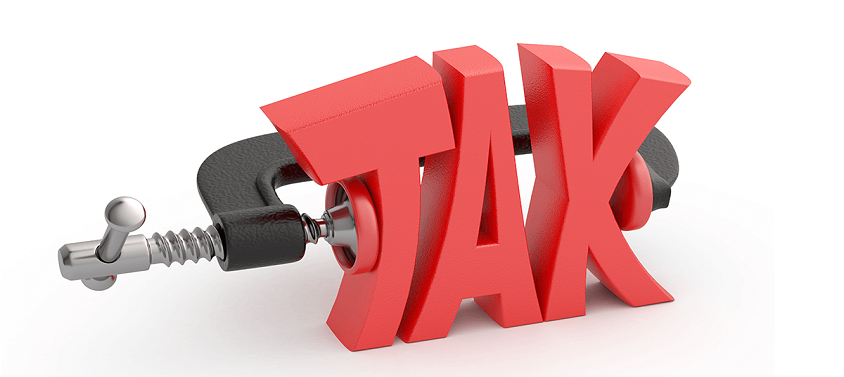Under some provisions in the Income Tax Act, you can cut down or completely eliminate tax payment on the gains that accrue because of the sale of a house or nay other non- commercial property.
Under normal conditions, when you make a gain on the sale of any property, you are liable to pay tax on these gains. If there is a difference of three years or more between the date of purchase and date of sale of any asset or property, the profit from the sale of the property is classified and termed as Long Term Capital Gain. Ion the other hand, if the difference is less than three years, the profit is considered to be Short Term Capital Gain. The tax rate for Long Term Capital Gain is 20% where as for Short Term Capital Gain is the same as your marginal tax rate.
Reinvest from house sale in a new house to save taxes :
If you invest your Long Term Capital Gain in another property, under Section 54 of the Income Tax Act, you are not liable to pay tax on the gain. But, there are some preconditions for this.
Firstly, only an Individual or an HUF(Hindu United Family) can avail this benefit.
Secondly, the gain must only be invested in another residential property ONLY.
Thirdly, the reinvestment must be made within an year or at the most two years of the sale of the first property. In the case of you constructing a new house, its construction should be completed within three years.
Lastly, this exemption can only be availed for one residential property.
This exemption under the Section 54 cannot be availed if you sell the house after holding it for three or less years. Besides, the lesser amount from the two: “capital gain from old property sale” or “amount invested on second property” is eligible for the tax exemption.
Along with this, this exemption is not valid if you haven’t held the selling property for like three years. If the house is sold between three years of its purchase, the amount claimed for exemption under Section 54 is deducted from the acquisition cost of the new house.
The holding period of 36 months has now been reduced to 24 months in case of immovable property ( land or building or both). This has been in order to boost the ailing real estate sector and make it more attractive for the investors.
You are liable to deposit he unutilized amount of your capital gain in a Capital Gains Deposit Account in any public sector bank, If you haven’t utilized the whole of the gain amount before the date of filing your Income Tax Return. Afterwards, within a specified time limit, the amount can be withdrawn from this account for the purchase or construction of new house.
Indexation helps you to save taxes:
You are bound to avail indexation benefit on the Long Term Capital Gains. It is calculated using the simple formula:
Capital Gain= Selling Price- Indexed Cost of Acquisition where
Indexed Cost of Acquisition=Purchase Price * (Index in Year of Sale / Index in Year of Purchase)
So, For instance, For a property purchase in the year 1994-95 @ Rs 20 lacks and the sale in year 2015-16, the gain isn’t directly 80 lacks, instead is calculated by the above formula:
Now, the index in 1994-95 stood at 259 and in 2015-16 at 1,081.
Hence, your indexed cost of acquisition will be = 20 x (1081/259) = 83.48
Your long-term capital gain will be = 100 – 83.48 = 16.52 lakhs.
Invest in specified bonds for tax break:
There is another exemption on capital gains tax under the Section 54EC in the case amount has been invested in the bonds of REC (Rural Electrification Corporation) or NHAI (National Highways Authority of India). This is valid in the case the investment has been made within the six months of the selling of the property. With tenure of three years, up to 50 lacks can be invested in these bonds.
The government, in the Finance Bill 2017 has proposed that such type of investments can be done in any bond which is probably redeemable after three years, which in fact has been notified by the Central Government for that matter. This step has been taken in order to widen the scope of this particular clause. This amendment in the case is supposed to take effect from April 1, 2018. So, will be applicable for the financial year 2018-19 and further.

